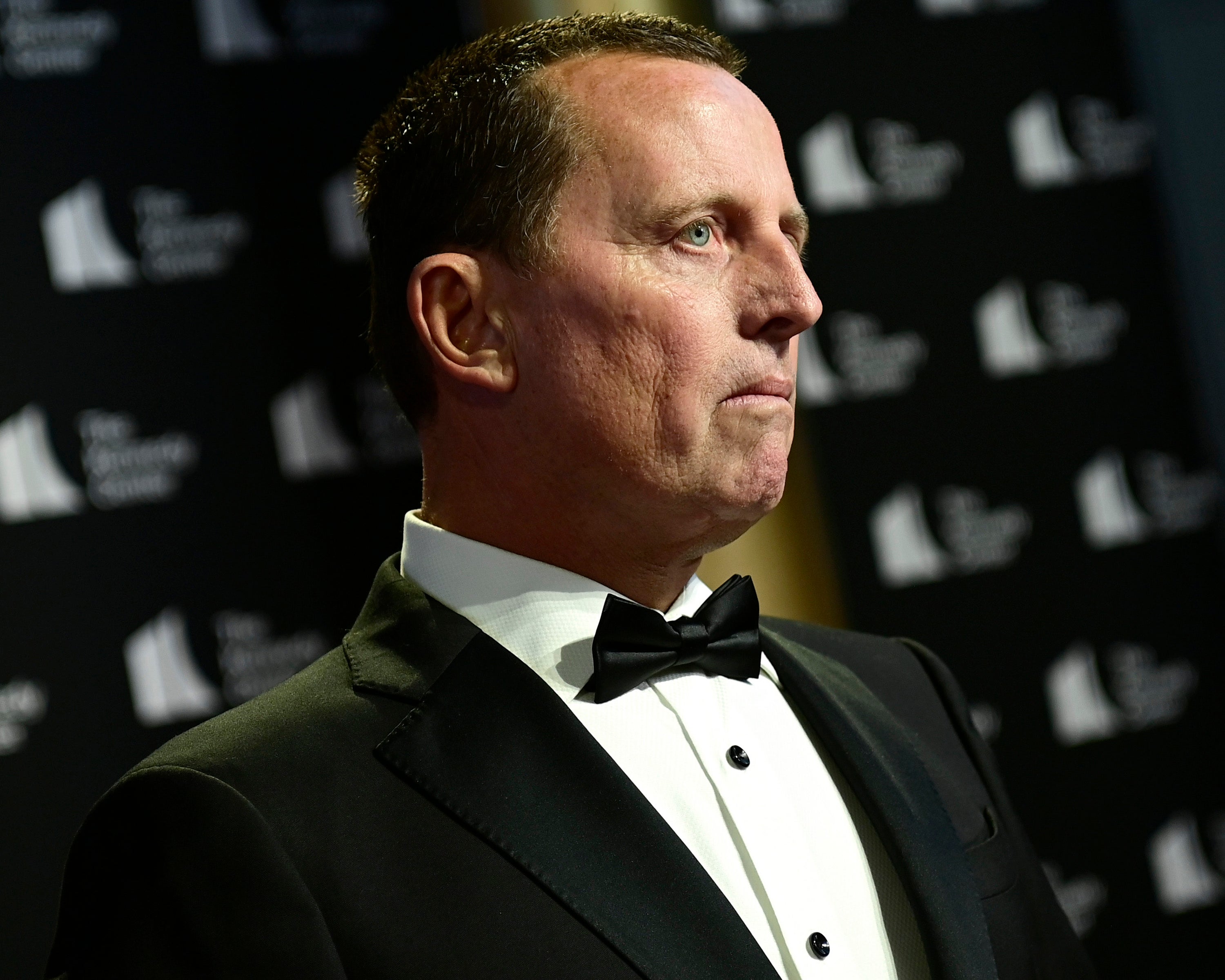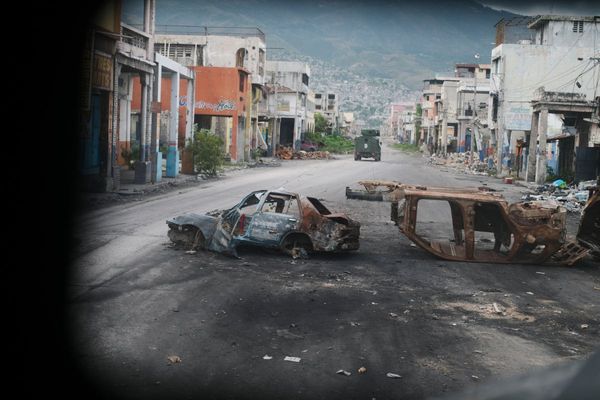Despite the Trump administration’s claims that dozens of Venezuelan deportees sent to El Salvador’s brutal maximum-security prison were no longer the responsibility of the United States, officials appeared to be willing to use them as a bargaining chip in a failed prisoner exchange.
Donald Trump’s administration was reportedly working on two separate deals to bring home 11 American citizens and legal permanent residents imprisoned in Venezuela in exchange for sending home roughly 250 Venezuelans who were deported from the United States to El Salvador.
But those competing negotiations, led by Secretary of State Marco Rubio in one camp and presidential envoy Richard Grenell in another, appear to have fallen apart, leaving U.S. citizens and about 80 political prisoners in Venezuelan jails without a deal in sight.
Trump’s envoy offered up his own conflicting deal with Venezuela that offered up the continued operation of oil and gas giant Chevron, a massive financial pipeline for the Venezuelan government, according to The New York Times, citing people familiar with the talks.
The strategy also appeared to undermine the United States’ antagonistic approach to Nicolas Maduro’s regime and previous attempts in Trump’s first term to oust him through sanctions and diplomatic isolation.
Roughly 250 Venezuelans were deported to El Salvador’s brutal Terrorism Confinement Center beginning March 15, when the president invoked a centuries-old wartime law that labelled alleged Tren de Aragua gang members “alien enemies” who could be summarily deported.
The White House claims that Maduro directed an “invasion” of gang members into the country — contradicting reports from U.S. intelligence agencies.
Administration officials repeatedly have claimed for months that the United States no longer has jurisdiction over deportees now locked up in El Salvador. But authorities there recently told the United Nations that the “legal responsibility for these people lie exclusively” with the U.S. government.
The administration has argued it is powerless to move those detainees out of El Salvador despite federal court orders, yet officials were putting them in play for the botched prison transfer.
“This is yet another piece of evidence that the administration is deliberately stonewalling the courts and refusing to cooperate,” American Immigration Council fellow Aaron Reichlin-Melnick said.

Salvadoran president Nayib Bukele had first hinted at prospects of a “humanitarian agreement” with the countries in April, weeks after agreeing to imprison U.S. deportees in CECOT. Venezuelan officials, meanwhile, had dismissed the proposal and demanded the return of their “kidnapped” countrymen.
The initial prison swap talks were led by Rubio — who also serves as acting national security adviser, among other roles — and John McNamara, the top U.S. diplomat in Columbia, according to The Times.
But Grenell — who is also the acting head of the John F. Kennedy Center for the Performing Arts — had called the president to tell him he was making an offer of his own that included a Chevron deal more favorable to Venezuela, The Times reported. The White House, meanwhile, was fielding threats from Republican allies to pull their support from his massive spending bill if the administration eased oil sanctions against Venezuela.
“The uncoordinated pause in arms to Ukraine and the uncoordinated prisoner diplomacy with Venezuela both reflect not just generalized dysfunction in Trump 2.0 foreign policy process but specifically the weakness of the dual-hatted SecState/National Security Advisor,” according to Brian Finucane, a senior adviser with the International Crisis Group and senior fellow at Reiss Center on Law and Security at NYU School of Law.
Grenell declined an interview request with The Times, “but in an email used a profanity to denounce The Times’s account of the separate deals as false,” according to the outlet.
“There is no fraction or division,” White House press secretary Karoline Leavitt said in a statement. “The president has one team, and everyone knows he is the ultimate decision maker.”
A swap would likely involve the return of 11 Americans, including Lucas Hunter, who was arrested in January, and Jonathan Pagan Gonzalez, who was arrested last year.
In May, Grenell had traveled to Venezuela on a separate trip to secure the release of Air Force veteran Joseph St. Clair, who was imprisoned in the country since November 2024. Grenell also helped release six other Americans in January shortly after Trump entered office.
Maduro’s government, meanwhile, has wrongfully detained at least 85 people with foreign citizenship, according to human rights watchdog organization Foro Penal.
El Salvador officials say deported migrants in notorious jail are Trump’s problem, not theirs
Trump’s Justice Department wants to denaturalize citizens. Can he do that?
Stocks mixed as Trump tariff tensions continue
Trump risks angering base with exemptions for migrant farm workers
Trump seems unaware who ordered pause on Ukraine weapons shipments







